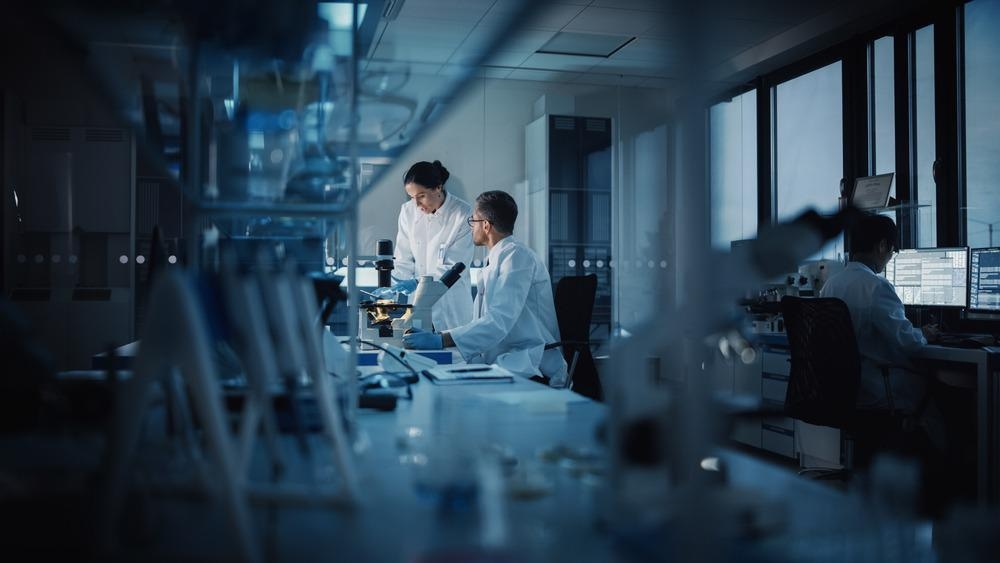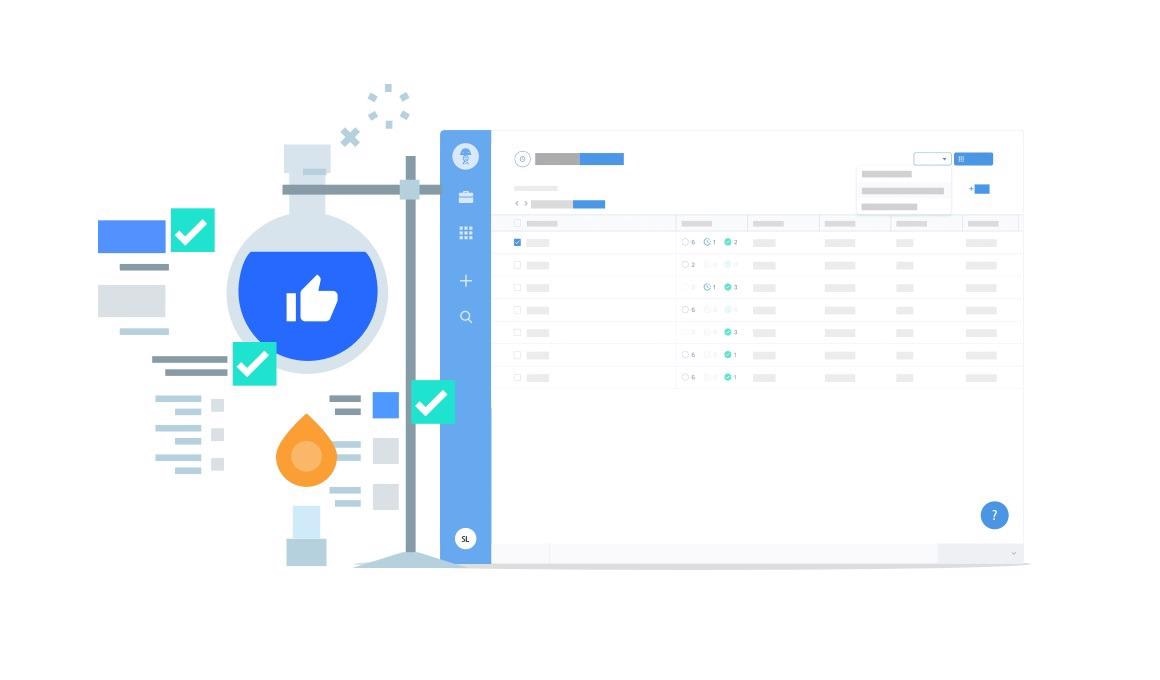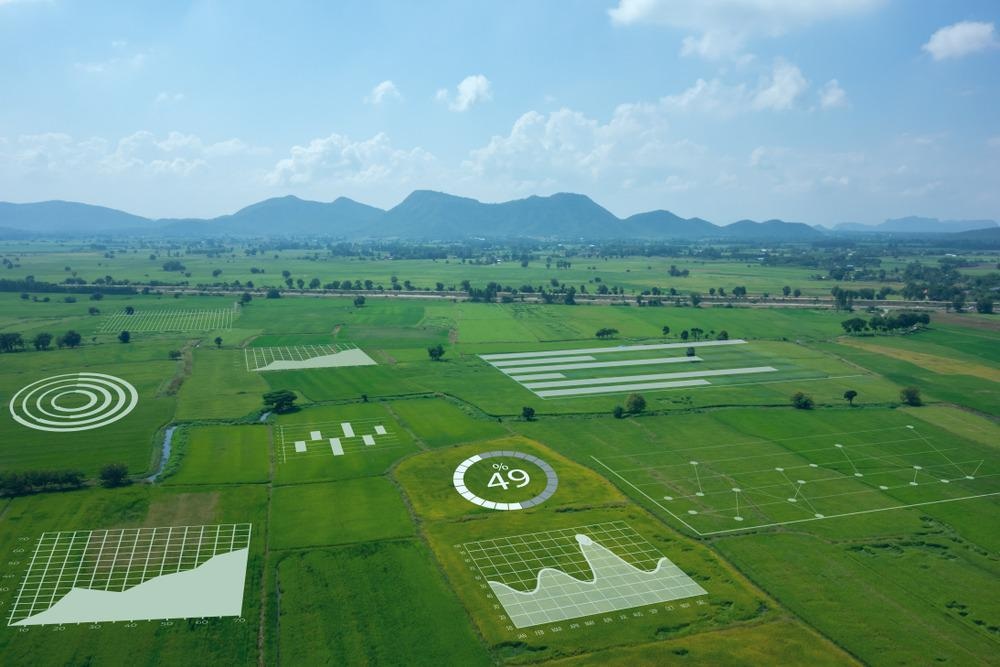Produced in Partnership with BenchlingDec 10 2021
Please could you introduce yourself and tell us about your role at Benchling?
My name is Sajith Wickramasekara and I am the co-founder and CEO of Benchling. Benchling makes cloud-based R&D software that’s powering the biotechnology industry.
My background is in software engineering. I studied Computer Science at MIT but along the way, I got intrigued by biology and started working in a wet lab. I loved the idea of being able to contribute to the discovery of life-saving medicines.
The contrast between software and science was the core insight behind Benchling. In my life as a software engineer, I had powerful, rapidly evolving tools that helped me work seamlessly with other developers. In the biology lab, where I was doing arguably more important and complex work, I had a paper notebook and Excel spreadsheets. Software might be eating the rest of the world, but it has failed science.
That’s why my co-founder and I started Benchling — to build software that could power modern science.
Today, over 200,000 scientists across 600 biotech companies and 7,000 research institutions worldwide have adopted Benchling to make breakthrough discoveries and bring the next generation of medicines, food, and materials to market faster than ever before. Our customers are some of the world’s most innovative biotech companies, including 22 of the 50 largest global biopharma companies.
Earlier this month, we announced Benchling’s $100M Series F funding and continued European expansion, fuelled by the rapid growth of biotechnology.
Benchling: Accelerating life science breakthroughs
Benchling works within the biotechnology space. What is Benchling’s mission, and its core values? How are you trying to achieve them?
Recent breakthroughs in biology have the potential to transform every aspect of our lives in the same way computing and the internet did. Biotechnology is rewriting the medicines we take, the food we eat, and the materials, chemicals, and fuels we rely on day-to-day.
At Benchling, we are accelerating the pace of this research, helping the next generation of scientists make breakthrough discoveries and products and bring them to market faster than ever before. We are the foundational software infrastructure for scientists redefining the world.
We have leadership principles that guide the way we work together at Benchling. I’ll highlight a few. The first one I’d share is to “obsess over customers,” which means deeply understanding our customers and what they need. We embrace the complexity of our customers’ work instead of over-simplifying and we over-invest in building meaningful customer relationships so we can help them be more successful. Another principle is to “admit mistakes and shortcomings.”
At Benchling everyone openly acknowledges failures and what we don’t know, even when it’s awkward or embarrassing to do so. We do this to build trust, encourage learning, and foster comfort with vulnerability and feedback.
Biotechnology is revolutionizing every part of our lives from food to clothes, to manufacturing. How has the biotechnology sector evolved over the last 10 years and where do you see the future of biotechnology?
The world today is becoming increasingly reliant on biotechnology — from healthcare and drug discovery to agriculture and sustainable food — it's more essential than ever to provide scientists with the best technology, designed specifically to manage the complexity of biology. Scientists are living through a renaissance of techniques to measure and engineer biology that was unthinkable a decade ago.
Breakthroughs in sequencing technology are opening a window to precisely inspect biology at the resolution of single cells. Advances in robotic automation enable scientists to now run thousands of experiments in parallel. The reality for scientists today is an order of magnitude more experiments, each generating an order of magnitude more data—an explosion in experimental data creation.
The nature of the scientific process is also rapidly evolving. The era of the lone scientist and a eureka moment is long gone. R&D organizations are developing repeatable processes for innovation, not just individual products. They often have dedicated teams iterating on each step of these processes, requiring successful transfer of complex R&D context through numerous handoffs and intertwined feedback loops.
Bringing a new innovation to market has become a complex undertaking, requiring large-scale collaboration among hundreds of highly specialized scientists, and oftentimes external partners.

Image Credit: Gorodenkoff/Shutterstock.com
A lot of software that scientists use within the R&D sector is often outdated and slow. How is Benchling working alongside organizations to help improve scientists' tools?
Biotechnology holds the key to disruptive breakthroughs – cures for cancers, drought-resistant crops, sustainable biofuels, and foods – but many scientists still rely on paper, spreadsheets, email, and other disjointed, outdated systems to store data and collaborate.
Over 40% of research time is wasted due to busy work, poor reproducibility, and missing data. Legacy R&D software is outdated, stifling scientific potential. Moreover, as biotechnology is becoming more complex at an exponential rate, legacy tools are quickly becoming completely unusable.
Benchling is a truly unified approach that combines key capabilities scientists need under a single pane of glass. Because Benchling is purpose-built for modern science, Benchling enables a scientist to design experiments, track their samples, capture data, analyze results, and collaborate from one place.
Having a unified cloud architecture enables large enterprises, biotech startups, academics, and contract research organizations to seamlessly collaborate with each other. Our platform and infrastructure support the transfer of configuration and data with robust security and access controls that give our customers confidence when handling their most critical IP.
We recently launched support for Early Development in our product, which was developed by speaking to our customers to find out what their needs are and how we can help them achieve those. Customers who started on Benchling in early research are now moving their programs into clinical trials, and they require additional functionality to support more regimented control for sample and process management.
We also heard from large organizations that want to reduce the complexity of their IT ecosystem. That’s why we built support for Early Development in Benchling, to accommodate both the flexibility and speed needed for research efficiency, as well as the control and compliance required for regulated processes.
Our world is becoming increasingly digitized, a process that has accelerated significantly due to the COVID-19 pandemic. How will the R&D sector transform as our world becomes more reliant on digital technology and how does Benchling fit into this future?
Technology is playing a critical role in advancing science. It is enabling drugs to be developed faster, diagnostics to be made more accurately and efficiently, and can underpin better collaboration between scientists as they research and develop new treatments. Digital technology allows the sector to become more efficient, and with data being easier to access, validate, and more discoverable, R&D will ultimately become faster. This means that we’ll start to see discoveries that will transform our lives.
Over the last year alone we’ve seen scientific breakthroughs made at speeds previously unthinkable, all thanks to technology. For example, DNA sequencing can be carried out in a matter of hours, more cost-effectively, and more accurately than ever before.
Our technology will fit into this by constantly evolving with R&D needs. The R&D teams we worked with felt that maintaining data accessibility was one of their primary aspirations. They spend a lot of time digging through entries and compiling reports manually, which is a huge drain on their available time. They wanted to be able to work more effectively together, within their teams, across divisions, between sites. This was especially true for Development teams who wanted a seamless tech transfer from their Discovery colleagues. They also wanted all of this from a single interface that models how they organize their work, not a collection of different applications all designed for different purposes.
We also work closely with R&D IT teams. They need to keep data structured and consistent across the organization, so they don’t have to spend resources to stitch it all together with custom integrations and code. They want their tech to be highly composable, which means they can take the packaged capabilities they need off the shelf, and easily connect it to other applications and databases they’re running, or configure the same application for multiple different use cases, and then easily adapt as needed over time.
And while we’re witnessing more cloud-based offerings on the market, there is still a high bar for anyone providing these applications. To that end, we developed a platform that enables our customers to license a single unified system for R&D that had been historically served by disparate ELN, LIMS, and LES software.

Image Credit: Benchling
You offer a fully unified platform to centralize and standardize all R&D data. Can you tell us more about this platform and how it works?
Benchling’s R&D Cloud is the first purpose-built system of record and engagement for the scientists and organizations who are leading the century of biology. By using our cloud-native software, our customers can modernize and digitize their scientific processes and bring products to market faster.
Benchling powers the full R&D lifecycle, which is modeled on the Design-Build-Test-Learn cycle that scientists commonly use. This cycle isn’t carried out by a single scientist, but by a multitude of different teams that each specialize in different pieces of it. This means scientists, IT specialists, and R&D leaders need to manage complex cross-team handoffs that often span multiple departments, both inside and outside the walls of the R&D organization. Benchling is purpose-built for scientists, allowing them to "live" entirely in our application suite as they perform work from designing experiments to capturing & analyzing data to collaborating across teams.
R&D organizations today can’t collaborate across this full lifecycle because their solutions are fragmented and siloed, scattering data and institutional knowledge. Benchling offers customers a single source of truth.
Your platform also offers a lot of advantages compared to other data solutions. What is the ‘Benchling difference’?
Here’s what sets Benchling apart:
- First, we’re designed for modern science. The foundation of Benchling, our data model, is specifically built to keep up with the latest science, no matter how complex.
- Secondly, we are a single source of truth for R&D. Because our R&D Cloud is a system of record that centralizes and standardizes data, scientists can finally collaborate across the entire R&D lifecycle — from early research through to discovery and development.
- Our unified platform drives smarter, faster decisions. Only a unified cloud platform with massive datasets like Benchling can handle the robotics, artificial intelligence, and machine learning that modern R&D organizations use to extract meaningful insights at scale and stay competitive.
What applications can your software be used in?
Benchling started with biopharmaceutical research. We are the system of record for biological samples, processes, and data. Today, Benchling can be applied in a number of industries including pharma, agriculture & food, materials, chemicals, and fuels, as well as academia. We work with companies that develop life-changing products. For example, in biopharmaceuticals, we work with innovators like Verve Therapeutics and Editas Medicine who are each building a CRISPR gene-editing medicine to cure diseases.
In agriculture and food, we work with innovators like Pairwise plants. Beyond innovators, the world’s most respected enterprises are also building on Benchling, including companies such as Sanofi, Genentech, Regeneron, Syngenta, DuPont, BP, Novozymes, and Procter & Gamble.
Do you believe that as more companies turn to smarter decision-making, scientific advancements will be made faster benefiting not only companies and organizations but everyone as a whole?
The short answer to this is yes. Companies around the world are spending hundreds of millions to adopt software that advances digital transformation across business units from HR to sales and finance. However, R&D organizations have been slower to embrace digital approaches even though there is increasingly a pressing need for it.
R&D organizations currently have a large volume of highly siloed, on-premise legacy applications, which greatly increases the complexity of their business processes. To accelerate digital transformation, R&D organizations would benefit from a new approach to unify, tailor, and run software without significant IT resources or changes to existing infrastructure, which is the promise offered by cloud technologies and software-as-a-service (SaaS).
With nearly every aspect of life becoming digital, scientists and R&D teams also expect the software they use to be highly available, user-friendly, and personalized. This means R&D needs purpose-built software for complex scientific workflows, not generic or horizontal enterprise software offerings.
At Benchling, we are focused on creating a new paradigm. By providing the industry’s first purpose-built system of record and engagement for the scientists and organizations who are leading the century of biology, we enable scientists to collaborate, discover, and develop the next generation of leading medicines and biologically derived products, and unleash the power of biology to address many of the biggest problems facing our world today.

Image Credit: MONOPOLY919/Shutterstock.com
What are you looking forward to at Benchling?
In the 21st century, biotechnology will rewrite life as we know it, from the medicines we take, the crops we grow, the food we eat, the materials we wear, to the household goods we rely on every day.
Now that scientists can read, write, and edit the very source code of life in ways that were unthinkable a decade ago, biology can be used to modify living cells in ways that fundamentally impact human health, world hunger, climate change, and more. Biology can rewrite cells to cure and prevent disease, to create more nutritious, higher-yield crops with built-in genetic defenses for heat and drought, to grow brand new, disruptive materials and ingredients that will reduce our dependence on petrochemicals and help solve climate change.
As biology becomes more and more prominent in our lives, it will create entirely new markets and bring sweeping changes to the world’s economies and societies. We believe biology is the foundational science that will transform human life, and biotechnology is the most important platform since the internet.
I’m looking forward to working on all the ways Benchling can drive that future forward. We will continue growing our team and developing our platform for our customers, who are solving some of humanity’s most pressing challenges.
Where can readers find more information?
More information about Benchling and what we do can be found on our website: https://www.benchling.com/
About Sajith Wickramasekara
Sajith Wickramasekara is the co-founder and CEO of Benchling, pioneer of the R&D Cloud powering the biotechnology industry. Before co-founding Benchling in 2012, he was a research assistant at Liquidia Technologies and Duke University Medical Center.
Sajith was named to Forbes 30 Under 30 list in 2016 and studied electrical engineering and computer science at the Massachusetts Institute of Technology.
About Benchling
Benchling is the pioneer of the R&D Cloud, software that powers the biotechnology industry. More than 200,000 scientists at over 600 companies and 7,000 research institutions globally have adopted Benchling's R&D Cloud to make breakthrough discoveries and bring the next generation of medicines, food, and materials to market faster than ever before.
The R&D Cloud helps these organizations modernize their scientific processes and accelerate collaboration so they can convert the complexity of biology into world-changing results. For more, please visit Benchling.com.